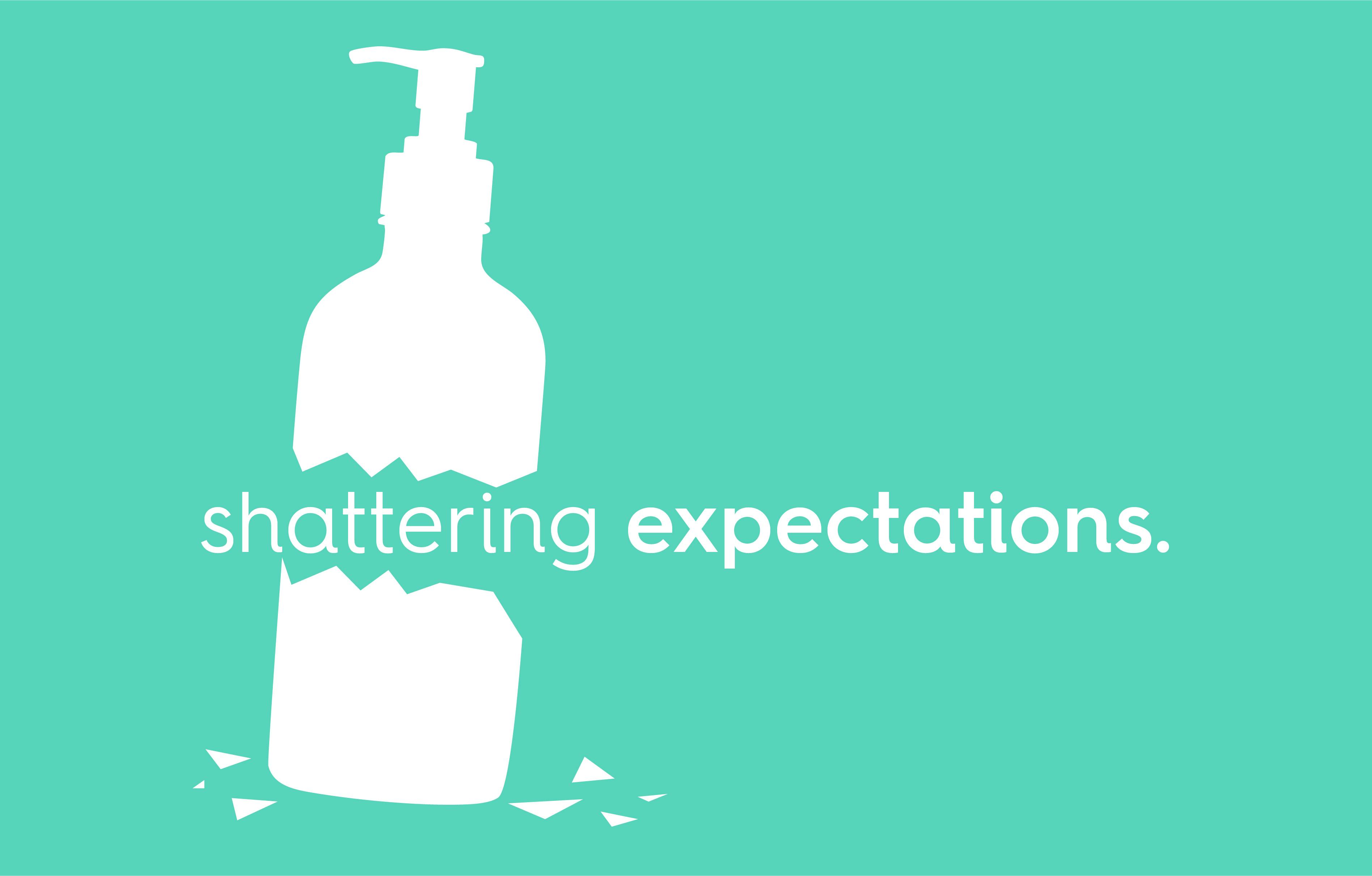10 Jul 2025
Glass is pretty much the original go-to for storing just about anything! In fact it’s been holding our pickles, perfumes, and Prosecco for centuries.
BUT while it is tough, colourful, and infinitely recyclable (in theory)… it’s not always the planet’s best friend. Because, as with most things in the sustainability space, it’s complicated.
best for bottles.
At smol, we believe in doing things better.
That means finding the best, most sustainable packaging for each product that still performs brilliantly for our customers and doesn’t cost the earth (in lots of ways).
So when it came to designing our refillable bottles-for-life, we did some serious research, and the result was: no glass.
Instead, we use 100% post consumer recycled plastic because it has a nearly 90% lower environmental impact than a glass bottle.¹ Which is a lot.
glass: the good & the gaffes.
Let’s give glass some credit here. It’s non-toxic. It doesn’t react with the things it tends to store. It can be recycled again and again without losing quality.
Which makes it attractive in lots of ways BUT there’s a catch (or three).
1. making glass takes LOTS of energy.
Melting the raw materials takes extreme heat (around 1500°C) and a LOT of energy. Even recycled glass needs to be re-melted, and that accounts for about 75% of the total energy used.² That’s a lot of carbon released into the atmosphere for every bottle.
2. sand isn’t infinite.
Glass needs silica sand… and we’re running out. In fact sand is now the world’s second-most used resource after water..³ Mining it damages ecosystems, reduces biodiversity and can even violate workers’ rights.
3. glass is heavy.
And this one’s a big one. Transporting glass bottles creates far higher carbon emissions compared to shipping lightweight recycled plastic bottles. More weight = more fuel = more carbon.
plastic pros.
So when you look at the whole lifecycle?
Plastic bottles actually have a much lower environmental footprint than glass, especially when made from recycled materials like our refillable bottles-for-life.
Our 100% recycled PCR plastic bottles are:
- much lighter to transport (carbon-saving win).
- less energy intensive to produce.
- already in use (we're turning old plastic into something new, instead of making more).
In fact, it takes 75% LESS energy to make a bottle from recycled plastic compared to making one from virgin plastic.⁴
Which means our bottles-for-life aren’t just better than glass… they even have lower carbon footprints than brand new plastic bottles too.
Plus, our bottles are designed to last and last. Refill, reuse, repeat.
No single-use nonsense here.
sustainability isn’t black & white.
It’s easy to assume glass = good and plastic = bad.
But when you dig into the data (and we love a dig), it’s clear that thoughtfully recycled plastic beats glass in the race for a lighter footprint.
Of course, we’ll keep pushing for even better materials as technology evolves. And there’s more on that to come so keep watching! Change comes from revolutionising the old ways… and that’s exactly what smol’s here to do.
₁ Ecochain 2024
₂ Techno-economic assessment of glassmaking decarbonization through integration of calcium looping carbon capture and power-to-gas technologies. Science Direct. 2023
₃ UN Environment Program 2023
₄ UK Plastics Pact 2020/21 Annual Report
